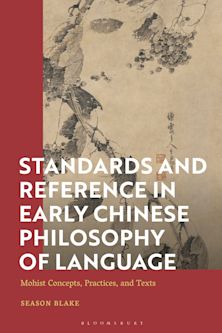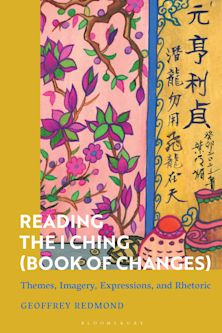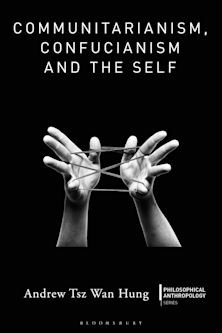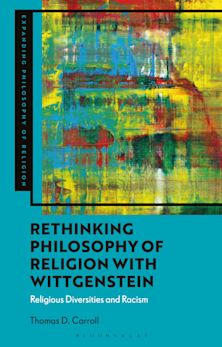- Home
- ACADEMIC
- Philosophy
- Chinese Philosophy
- Chinese and Indian Ways of Thinking in Early Modern European Philosophy
Chinese and Indian Ways of Thinking in Early Modern European Philosophy
The Reception and the Exclusion
Chinese and Indian Ways of Thinking in Early Modern European Philosophy
The Reception and the Exclusion
You must sign in to add this item to your wishlist. Please sign in or create an account
Description
Why were Chinese and Indian ways of thinking excluded from European philosophy in early modern times? This is a study of what happened to the European understanding of China and India between the late 16th century and the first half of the 18th century.
Investigating the description of these two Asian civilizations during a century and a half of histories of philosophy, this book accounts for the change of historiographical paradigms, from Neoplatonic philosophia perennis and Spinozistic atheism to German Eclecticism. Uncovering the reasons for inserting or excluding Chinese and Indian ways of thinking within the field of Philosophy in early modern times, it reveals the origin of the Eurocentric understanding of Philosophy as a Greek-European prerogative.
By highlighting how this narrowing and exclusion of non-Western ways of thought was a result of conviction of superiority and religious prejudice, this book provides a new way of thinking about the place of Asian traditions among World philosophies.
Table of Contents
Acknowledgements
General Introduction
Preliminary Note to Some Terms
1. India and Chinese Philosophy in the Late-16th Century Europe
2. The Rise of the Myth of an Asiatic Atheism
3. The Exclusion of Asian Philosophical Thought in Europe
Conclusion
Bibliography
Primary Sources
Secondary sources
Index
Product details

| Published | Nov 12 2020 |
|---|---|
| Format | Ebook (PDF) |
| Edition | 1st |
| Extent | 256 |
| ISBN | 9781350153561 |
| Imprint | Bloomsbury Academic |
| Series | Bloomsbury Studies in World Philosophies |
| Publisher | Bloomsbury Publishing |
About the contributors
Reviews
-
This is a noteworthy contribution to the intercultural study of the history of philosophy and the early modern formation of the idea of philosophy as an exclusively European project. This work will inform its readers of less recognized episodes in that history as well as inspire them to rethink the modern Western-centered conception of philosophy and its history.
Eric S. Nelson, Professor of Philosophy, The Hong Kong University of Science and Technology, Hong Kong
-
Finally some news on "Orientalism before the birth of Orientalism": this genealogical investigation into the roots of the Eurocentric prejudice against Indian and Chinese philosophical traditions, which is led with maestria by a young Italian scholar trained both as a philosopher and a sinologist, shows that it wasn't entirely the fault of Hegel after all.
Anne Cheng, Chair of Chinese Intellectual History, Collège de France, Paris, France
-
The rejection by Western philosophers of Indian and Chinese thoughts is often situated in the Nineteenth century. Through this very well documented study, Selusi Ambrogio demonstrates that the rejection took already roots in the Seventeenth century and was fully in place in the Eighteenth century, explaining very methodically the complex reasons for this exclusion. His analysis invites us to rethink what should be a philosophy which truly includes India, China and other traditions in the 20th century.
Thierry Meynard, Professor of Philosophy, Sun Yat-Sen University, Guangzhou, China

ONLINE RESOURCES
Bloomsbury Collections
This book is available on Bloomsbury Collections where your library has access.



































